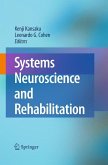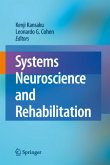The impaired brain has often been difficult to rehabilitate owing to limited knowledge of the brain system. Recently, advanced imaging techniques such as fMRI and MEG have allowed researchers to investigate spatiotemporal dynamics in the living human brain. Consequently, knowledge in systems neuroscience is now rapidly growing. Advanced techniques have found practical application by providing new prosthetics, such as brain-machine interfaces, expanding the range of activities of persons with disabilities, or the elderly. The book's chapters are authored by researchers from various research fields such as systems neuroscience, rehabilitation, neurology, psychology and engineering. The book explores the latest advancements in neurorehabilitation, plasticity and brain-machine interfaces among others and constitutes a solid foundation for researchers who aim to contribute to the science of brain function disabilities and ultimately to the well-being of patients and the elderly worldwide.
"The book focuses on systems neuroscience and the latest advances in technology. ... The numerous, colorful tables and figures help clarify the text. This book is excellent in discussing new techniques to help individuals with brain impairments. It will be of great benefit to researchers who are interested in brain function disabilities." (Gary B. Kaniuk, Doody's Book Reviews, May, 2015)








